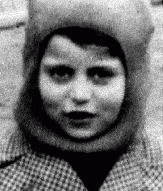
Zigmond Adler
Born: July 18, 1936
Liege, Belgium
Zigmond's parents were Czechoslovakian Jews who had emigrated to Belgium. His mother, Rivka, was a shirtmaker. She had come to Belgium as a young woman to find a steady job, following her older brother, Jermie, who had moved his family to Liege several years earlier. In Liege, Rivka met and married Otto Adler, a businessman. The couple looked forward to raising a family.
1933-39: Zigmond was born to the Adlers in 1936, but his mother died one year later. His father remarried, but the marriage didn't last. Zigmond's father then married for a third time, and soon Zigmond had a new half-sister and a stable family life. As a boy, Zigmond often visited his Uncle Jermie's family, who lived just a few blocks away.
1940-44: Zigmond was 3 when the Germans occupied Belgium. Two years later, the Germans deported his father for forced labor. After that, Zigmond's stepmother left Liege, giving Zigmond to Uncle Jermie and Aunt Chaje. When the Nazis began rounding up Jews in Liege, some of Uncle Jermie's Catholic friends helped them get false papers that hid their Jewish identity and rented them a house in a nearby village. Two years later, early one Sunday morning, the Gestapo came to the house. They suspected Jews were living there.
Zigmond, his aunt and two cousins were sent to the Mechelen internment camp, and then to Auschwitz, where 7-year-old Zigmond was gassed on May 21, 1944.